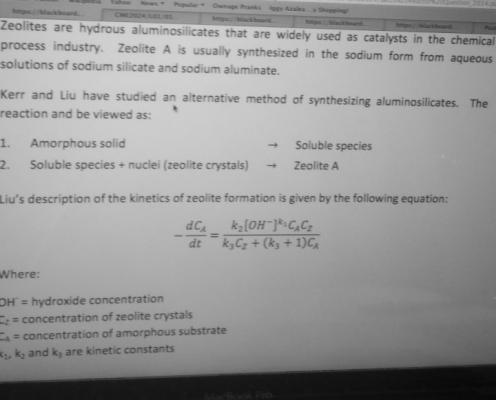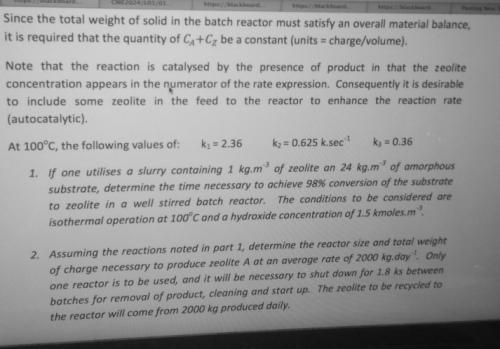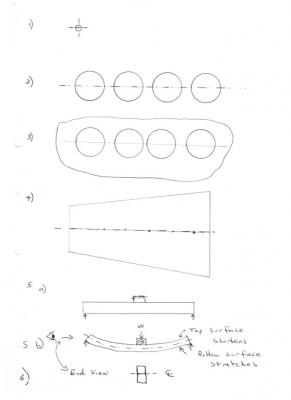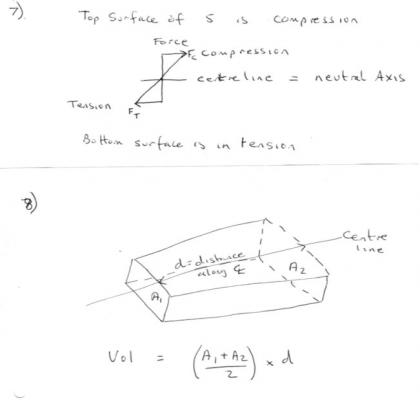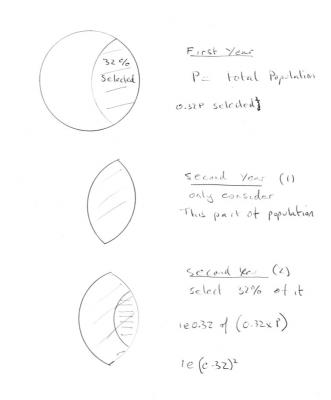-
Posts
18483 -
Joined
-
Last visited
-
Days Won
108
Content Type
Profiles
Forums
Events
Everything posted by studiot
-
After breaking my neck reading the scrolls you posted i thought that they first one gave you the equation and the second one gave you some figures to plug in. So what have you done so far and what do you not understand?
-
@jajrussel We are all agreed that for a relative speed of 60mph the difference is very slight. I have based my figures on the travellers measuring the distance across america as exactly 3000 miles and therefore measuring their transit time as 180000 seconds and their speed as 60mph. You have mentioned 'invariants'. Invariants means the same for all observers, not just the two in relative motion but others (eg in a helicopter flying above the vehicles) There is only one such invariant that is c the speed of light. However the 60 mph is the same for both the observers in the cars and those at the side of the road. Both observers subject to the same relative motion will observe the same speed (apart from the opposite signs) ie 60mph. So this is not exactly invariant but it is the same for both observers here. So swansont and JohnG will observe the transit time being a tad longer (as noted) and they will measure the distance across America as a tad longer than 3000 miles so that the figure of exactly 60mph is maintained. It is important to realise that both distance and time must change to maintain this equal value of relative velocity.
-

Calculate (i) his average weekly sales during the year
studiot replied to Chikis's topic in Homework Help
Well you said is was N13500 If you are asking what does overhead mean, it is the amount of money you must spend to maintain a shop, market stall or whatever the trader has. You said he was a shopkeeper so his shop costs him the same amount , whether he sells anything or not (electricity, water, perhaps rent, insurance etc) -

Electromagnetic radiation and steady state of hydrogen atom
studiot replied to Jeremy0922's topic in Speculations
Well that is not the way we learn, teach or practice Science from an early level. Take for instance the typical highschool maths questions 'A mass M is suspended from a light inextensible string...............' A rigid rod of length l supports two blocks....' 'A frictionless pulley.....' Yet these methods yield reproducible results adequate for many purposes. People every day bet their lives on calculations known to be inaccurate or based on known false assumptions because observation (experience) has shown that those calculations are adequate for purpose. Sometimes we have results without explanation and scientific theories are offered a conceivable explanations, such as the reversing magnetic fields of Earth, but we do not rely on them because they also predict effects we do not observe. Sometimes we have theories that offer apparantly good explanations and the authors of better ones struggle against the establishment to promote them, (isotasy v plate techtonics for instance), but usually further observations come to light which weed out the inadequate. These days we seek corroboration or exception more actively than ever, because we are aware of this. But we should always be wary of specifying how any theory 'should be' . I said 'adequate through experience' above this is a process that gives us increasing confidence in a theory as we make more and more observations that agree with its predictions, but fail to find exceptions. This is the case with Quantum Mechanics, And I commend it to the House. -
http://www.physics.smu.edu/scalise/www/misc/crackpot/crindex.html
-
I was asked to explain this comment I made in another thread, but since discussion would be off topic there I have started this one. I'm sure I have missed many obvious thoughts so comments from Engineers would be welcome. Paradoxically engineers use centre lines both because something balances about the centre line and because things are irregular about the centre line and for other practical reasons as well. Working through my examples 1) If we drill a hole or bang a nail in we want to mark the spot where to place the point of our drill or nail. This is at the intersection of two centre lines. 2) So let us say we are going to drill these holes to bore out the cylinders in an engine block. It is mechanically important that these are in a straight line to balance the cranking forces, so we reference them to a single line, the centre line. 3) Another good reason for using a centre line is that the edges of the workpiece (the block will be a rough casting) so the edges do not form good reference lines. Nor will the corresponding edges of any two blocks be the same. 4)Of course the edges may be straight and regular, but they may taper. They are therefore then difficult to measure from. Do you measure at right angles to the edge or what? Measurements are usually made in right angled (rectangular) coordinate systems. 5) Say I have a beam that I place on two supports so that as shown in (5a). If I now place a heavy weight on it so it bends as in (5b), the top surface is now shorter than the bottom surface. 6) So there must be an intermediate point where there is no change of length as in (6). It can be proved that this point is the centreline of such a beam. So it makes s ense to measure from the line of zero change. 7) Because the shortening of the top surface is caused by the ebnding introducing a compressive force and the lengthening of the bottom surface by a corresponding tensile force again there must be a line where there is zero distorting force and this again lies along the centre line. Another name for this is the neutral axis. 8)Returning to fig4, if that is actually part of a tapering block or cut in earthworks or whatever and I need the volume, I can calculate the volume as an area times a length. But what area and what length? Well it turns out that if I take the average of the two end areas and multiply this by (you guessed it) the distance along the centre line the product gives me the volume.
-

Calculate (i) his average weekly sales during the year
studiot replied to Chikis's topic in Homework Help
Turnover = sales ie it is just another word for total takings. Annual turnover = annual sales = (average weekly sales ) x 52 Net Profit = Sales - Costs Costs = Cost of goods + overheads -
Doesn't that give you a nice warm feeling. +1
-
This would seem to me to be a correct statement. Let us say you are referring to your 60mph road speed and you three are driving in convoy. The point is that the velocity v in the formulae is not 60mph, it is the relative velocity between your three convoy cars, which is precisely zero. This, of course, leads to zero time dilation between their clocks observed by the three drivers. So they measure their transit time across America as 180000 seconds. However since swansont was standing talking to JonG by the side of the road, their clocks measured a transit time of 180000.00000001 seconds.
-
Of course having got values for L and W you can check to see if they correctly match the conditions of the problem.
-
That was why I added the bit about the selection in the second year being partly from those who has been selected before and those who had not been selected. The total of these must add up to 32% of the total population. However they have the same probability of selection the second year, whether they have been selected before or not.
-
Welcome Andohr. Since no one else seems to want to help, although there were plenty logged in who could have. You need to recast your thread title to correct algebraic expressions. The question is impossible as you have written it. (you need a way to make the coefficient of y2 negative) Then multiply out the two expressions (x+y+k)(x+y+j) (there i've done a bit for you already) and 'compare coefficients' That is form a set of simultaneous equations comparing the terms in your other expression with the result of your multiplication, amd solve them/ For instance jk = c is one. By the way none of your expressions are actually equations since they do not contain an equals sign- just a small point.
-
Can you explain that in the light of Newton's Law of Gravitation?
-
Summer was still very much with us in September, and your link refrers to a firebug sighting in Devon, which is only a few miles away. However your link did lead me to this alternative, which seems more likely since it refers to outer hair, which I think I can see from my photograph, although I could not now be certain to tell from memory http://www.britishbugs.org.uk/heteroptera/Rhopalidae/corizus_hyoscyami.html Many thanks, perhaps the search is near its end. +1 It may even be that these have another common name elsewhere.
-
Somerset, England.
-
That is really good. +1 The link contains an answer to your first question, not your second one.
-
Did you not bother to read the link? You need to complete your SF course in torque and moment before this second question can be answered
-
update see post#4 here http://www.scienceforums.net/topic/86036-earths-rotation/ Thank you swansont
-
I posted some information about a similar question in post#9 here http://www.scienceforums.net/topic/86022-lunar-energy/ and I thank swansont for the extra data I asked for there.
-
This was all rather diverting, there is much more to be said about moments in general and torque in particular, and why we should make a distinction if anyone is still interested.
-
I can't yet answer this, until Chikis has had a chance to have a go, as this is homework help. But think about the one piece (or pair of pieces) of information in the problem statement, not yet used. As a matter of interest I make W = 36/8 this way.
-
Well yes that is true, but that is what we are told.
-
You asked in your previous question if you can reduce the number of equations. This problem is the ideal situation for this, you do not need L = 2W, You can simply use 2W, whereever you have written L. So original area= A = W (2W) = 2W2 Can you now write the second equation so that (A - 30) = ??
-
Consider the selection of one single juror. Because there are two probability dependent 'trials or experiments' (the correct statistical words for selection) to consider. One for each year. The combined effect of probability in both trials has to be taken into account. Here is a sequence using Venn diagrams to show why the probability is the product of the individual probabilities. Start with the first year and select 32%. (Fig1) Say the population is 100 so 32 citizens are selected. The only jurors who can be selected both years will come from this 32%. (Fig2) So in the second year select 32% of these 32 (Fig3) ie 10 citizens. Now 32% of something is an old fashioned way of saying multiply by 0.32. So 32% of (32%) = (0.32 x 0.32) = 0.1024. Note that the 68 citizens who were not selected in the first year also have a 32% probability of being selected in the second year So by the same reasoning 0.32 x 68 = 22 citizens were not selected in the first year but selected in the second. Note that 10 + 22 = 32. That is the probability of being slected in the second year is 32% as expected.


